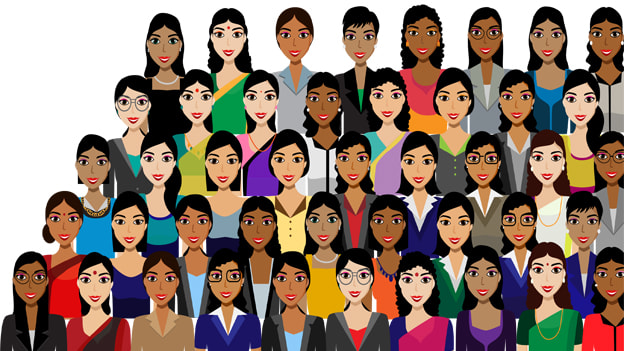Here’s a list of best Indian States to work for women professionals

According to a 2015 report by the McKinsey Global Institute, India could add 16% to its GDP in 10 years if women participated in the workforce at the same rate as men. But a recent Study ‘Breakthrough Index: Women in the Workplace’ by the Centre for Strategic and International Studies (CSIS), a top American think-tank, and Nathan Associates reveal that most states are far away from implementing women safety workable conditions. The Northeastern State Sikkim has topped the list with 29.9 of the Survey because of its high rate of female workforce participation, lack of restrictions on women’s working hours, and high conviction rates for workforce crimes against women (however, on a small sample size); while Delhi is lagging at the bottom of the list with 8.5 points.
Telangana is ranked second, while Puducherry and Karnata rank third and fourth respectively.
 According to the Report, in late 2015 Maharashtra is one of the four states to have amended the Factories Act to allow women to work at night but even it allows retail women workers to work till 10 pm. With a workforce that is only 24% female, India has one of the world’s lowest rates of female workforce participation. This is a serious drag on growth. Many states have laws limiting women’s working hours, and Indian women face harassment in the workplace and while commuting.
According to the Report, in late 2015 Maharashtra is one of the four states to have amended the Factories Act to allow women to work at night but even it allows retail women workers to work till 10 pm. With a workforce that is only 24% female, India has one of the world’s lowest rates of female workforce participation. This is a serious drag on growth. Many states have laws limiting women’s working hours, and Indian women face harassment in the workplace and while commuting.
“Delhi came last in our Index, due to its relatively low justice and workforce participation scores; its continued formal restrictions on women working at night in a wide range of sectors; and its lack of any incentives for female entrepreneurs in its industrial policies,” the report said. In India, only four states have removed all restrictions on women working at night in factories, retail establishments, and the IT sector – Sikkim, Karnataka, Andhra Pradesh, and Tamil Nadu). Nine States and Union Territories do not formally allow any women to work at night in any sector.
The States were ranked on four main factors:
- legal restrictions on women’s working hours in factories, retail, and the IT industry;
- the responsiveness of the state’s criminal justice system to crimes affecting working women, such as sexual harassment;
- the number of women workers in the state as a percentage of total workers;
- and the number of incentives the state’s startup and industrial policies offer women entrepreneurs. The maximum score was 40.
 The data is gathered primarily from the official government publications, and also supplemented by a few media sources. And if they didn’t find information after an exhaustive search, the data point was coded as zero. “This decision reflects our judgment that making information available to citizens is an important part of any policy to encourage women to join the workforce,” the report added.
The data is gathered primarily from the official government publications, and also supplemented by a few media sources. And if they didn’t find information after an exhaustive search, the data point was coded as zero. “This decision reflects our judgment that making information available to citizens is an important part of any policy to encourage women to join the workforce,” the report added.
All categories were scored from 1-10. The ‘justice’ score is the average of the percentage of FIRs that are chargesheeted and the percentage of trials that end in conviction. For the ‘freedom to work’ score, states received 3 points for every sector where women were able to work at night and a bonus point for having liberalized laws in all three sectors reviewed.
Image source: CSIS report













